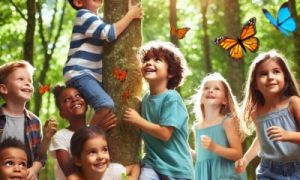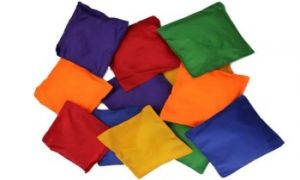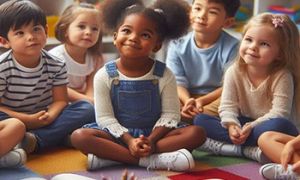

Workplace Bullying is something that each of us may have experienced at some point of time in our industry. It makes you feel incompetent, it's depressing and you feel worthless. No one should ever make you feel negative, especially at your work! Workplace Bullying is a serious risk to the emotional wellbeing and health of educators and it needs to be prevented and dealt with if it does occur. It's unfortunate but it still exists in early childhood settings!
Parent / Educator meetings help build respectful and positive relationships and enable educators and parents to share information about the child. Meetings add to the casual, daily conversations that you have with families by providing more detailed information about children's achievements and allow time for deep conversation.
With Winter just around the corner, it's important to take precautions to stay healthy during the cold season. It's easy for some of us to fall sick with viral infections especially when it's so easy to catch amongst the children at work. Here are some strategies on how to overcome the winter season, while working.
You have a new child starting in your room, their excited, their parents are happy and the family seems to be settling in well with the centre environment. The first day has come for the child to start, parents say goodbye and then the child starts - screaming, crying, pulling, begging their parent not to leave.
Preschool children have a chance to begin learning a foreign language before they start school under an expanded Early Learning Languages Australia (ELLA) program.
As per National Regulations, an Educational Leader is a suitably qualified and experienced educator, to lead the development and implementation of educational programs in the service. The following article includes information on the Roles and Responsibilities Of An Educational Leader, Supporting Educators, Supporting Continuous Improvement of the Service and more.
Minimum educator-to-child ratios and purposeful for services to highlight the importance of the safety, welfare and wellbeing of children and for Educators to effectively supervise children within the environment.
Conflicts are a common part of relationships and can happen within the workplace. Each and every person has their own thoughts, ideas and perspectives and you can’t expect people to agree with each other all the time. Knowing how to handle a conflict in a positive way provides an opportunity to strengthen your relationships in the workplace.
Welcome to the world of childcare...have you started working at a centre yet? How are you finding it? Or are you thinking of starting a career in childcare? Here is basically an outline of the list of duties you are expected to do while you are working at a childcare centre. Now remember, this is a very general outline and doesn't cover your centers policies & procedures and basic “centre duties” that you will also need to cover as part of your carer duties. The child care duties are normally given based on your level of qualification. The higher your qualification the more duties and responsibilities (endless paperwork) you have. If you are just starting in the childcare industry, your duties will obviously be different as you are still learning the ropes.
Working as a childcare professional enables you to interact with children, their families, co-workers and sometimes childcare specialists. It is important to maintain open and honest communication with all those involved at your centre and to establish comfortable relationships with the families, co-workers and specialists you are dealing with.
 Here is the list of the EYLF Learning Outcomes that you can use as a guide or reference for your documentation and planning. The EYLF… Read More
Here is the list of the EYLF Learning Outcomes that you can use as a guide or reference for your documentation and planning. The EYLF… Read More
 The EYLF is a guide which consists of Principles, Practices and 5 main Learning Outcomes along with each of their sub outcomes, based on identity,… Read More
The EYLF is a guide which consists of Principles, Practices and 5 main Learning Outcomes along with each of their sub outcomes, based on identity,… Read More
 This is a guide on How to Write a Learning Story. It provides information on What Is A Learning Story, Writing A Learning Story, Sample… Read More
This is a guide on How to Write a Learning Story. It provides information on What Is A Learning Story, Writing A Learning Story, Sample… Read More
 One of the most important types of documentation methods that educators needs to be familiar with are “observations”. Observations are crucial for all early childhood… Read More
One of the most important types of documentation methods that educators needs to be familiar with are “observations”. Observations are crucial for all early childhood… Read More
 To support children achieve learning outcomes from the EYLF Framework, the following list gives educators examples of how to promote children's learning in each individual… Read More
To support children achieve learning outcomes from the EYLF Framework, the following list gives educators examples of how to promote children's learning in each individual… Read More
 Reflective practice is learning from everyday situations and issues and concerns that arise which form part of our daily routine while working in an early… Read More
Reflective practice is learning from everyday situations and issues and concerns that arise which form part of our daily routine while working in an early… Read More
 Within Australia, Programming and Planning is reflected and supported by the Early Years Learning Framework. Educators within early childhood settings, use the EYLF to guide… Read More
Within Australia, Programming and Planning is reflected and supported by the Early Years Learning Framework. Educators within early childhood settings, use the EYLF to guide… Read More
 When observing children, it's important that we use a range of different observation methods from running records, learning stories to photographs and work samples. Using… Read More
When observing children, it's important that we use a range of different observation methods from running records, learning stories to photographs and work samples. Using… Read More
 This is a guide for educators on what to observe under each sub learning outcome from the EYLF Framework, when a child is engaged in… Read More
This is a guide for educators on what to observe under each sub learning outcome from the EYLF Framework, when a child is engaged in… Read More
 The Early Years Learning Framework describes the curriculum as “all the interactions, experiences, activities, routines and events, planned and unplanned, that occur in an environment… Read More
The Early Years Learning Framework describes the curriculum as “all the interactions, experiences, activities, routines and events, planned and unplanned, that occur in an environment… Read More

The Education and Care Services National Law and National Regulations prescribe requirements for children participating...
See more...
Bean bags are a great way for children to develop skills across all developmental areas...
See more...
Outcome 4: Children Are Confident And Involved Learners in the Early Years Learning Framework (EYLF)...
See more...© 2009-2025 Aussie Childcare Network Pty Ltd. All Rights Reserved.

